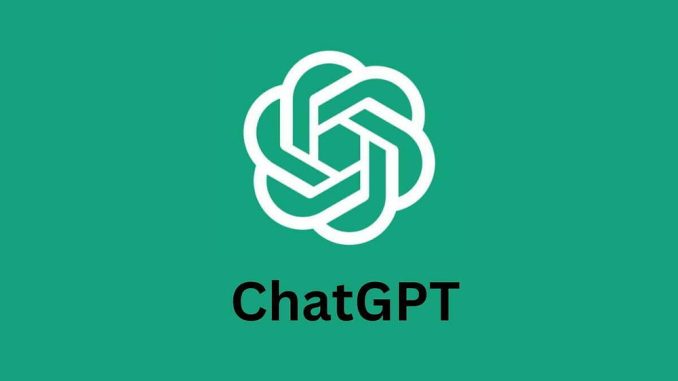
ChatGPT is an advanced language model developed by OpenAI. It’s powered by artificial intelligence (AI) and is designed to understand and generate human-like text based on the input it receives. Essentially, ChatGPT can carry on conversations, provide information, solve problems, and assist with various tasks in a natural, conversational manner.
Key Features of ChatGPT:
- Natural Language Understanding: It interprets text inputs to understand questions, commands, or context.
- Text Generation: Produces coherent and contextually relevant responses.
- Versatility: Supports tasks like writing, brainstorming, coding, tutoring, translating, and more.
- Adaptability: Can engage in casual conversation, professional inquiries, or technical problem-solving.
How ChatGPT Works:
ChatGPT is built on a type of machine learning called a transformer model, specifically OpenAI’s GPT (Generative Pre-trained Transformer) series. It’s trained on vast amounts of text data from the internet, enabling it to:
- Predict the next word in a sequence.
- Understand context from user input.
- Generate responses that feel conversational and human-like.
Applications of ChatGPT:
- Customer Support: Answering FAQs, assisting with queries.
- Content Creation: Writing blogs, marketing copy, or creative content.
- Education: Explaining complex topics, solving homework problems.
- Coding Help: Debugging, code generation, and technical advice.
- Personal Assistance: Scheduling, brainstorming, or idea generation.
Limitations:
While ChatGPT is powerful, it’s not perfect:
- It can occasionally provide incorrect or nonsensical information.
- It doesn’t have real-time awareness or direct internet access (unless specifically integrated with such tools).
- It lacks personal knowledge unless explicitly provided in the current conversation.
In Summary:
ChatGPT is like a virtual assistant, writer, and educator rolled into one, capable of enhancing productivity, learning, and communication. Its human-like responses make it a valuable tool across various fields and for everyday use.
Below is the top 100 things you can ask ChatGPT! click here to start chatting now
Creativity
- Generate creative writing prompts.
- Write poems, haikus, or limericks.
- Brainstorm story ideas or plotlines.
- Create unique character profiles for stories.
- Write lyrics for a song.
- Generate personalized greeting cards or love letters.
- Write scripts for plays or skits.
- Help outline a book or novel.
- Craft taglines for businesses or campaigns.
- Create short social media posts or captions.
Productivity
- Draft professional emails.
- Summarize lengthy articles or books.
- Assist with creating meeting agendas.
- Write resumes or cover letters.
- Create to-do lists or prioritize tasks.
- Generate code snippets or scripts.
- Draft contracts or agreements (non-legal advice).
- Brainstorm business names or ideas.
- Create SEO-optimized content.
- Suggest productivity tips or hacks.
Learning
- Explain complex topics in simple terms.
- Provide step-by-step solutions for math problems.
- Translate text into other languages.
- Recommend books or resources for specific topics.
- Create quizzes or flashcards for studying.
- Help with essay structure or research.
- Teach grammar or sentence improvement.
- Offer insights into historical events.
- Help understand coding languages.
- Share trivia or fun facts.
Planning
- Create itineraries for trips or vacations.
- Plan events like parties or weddings.
- Suggest meal prep ideas or recipes.
- Help budget personal expenses.
- Organize study schedules or routines.
- Draft workout or fitness plans.
- Plan garden layouts or home organization.
- Suggest career or job-search strategies.
- Create daily affirmations or journaling prompts.
- Plan creative date ideas.
Entertainment
- Play text-based games like 20 Questions.
- Create riddles or solve puzzles.
- Generate hypothetical scenarios (“What if…?”).
- Write fanfiction or spin-off stories.
- Suggest movies, shows, or games to try.
- Simulate debates or roleplay scenarios.
- Create an alternate ending for a favorite story.
- Write scripts for skits or comedy sketches.
- Help develop characters for Dungeons & Dragons.
- Generate funny memes or jokes.
Well-being
- Offer mindfulness exercises.
- Write guided meditations.
- Suggest self-care routines.
- Provide positive affirmations.
- Generate motivational quotes.
- Help track or improve mental health habits.
- Create gratitude journaling prompts.
- Share tips for work-life balance.
- Write personalized advice for stress management.
- Suggest ways to improve sleep hygiene.
Parenting
- Create fun activities for kids.
- Suggest bedtime stories or adapt fairy tales.
- Help with explaining difficult concepts to children.
- Suggest parenting tips or strategies.
- Generate educational games or quizzes.
- Create printable worksheets.
- Offer ideas for school projects.
- Suggest healthy snack options.
- Help manage family schedules or chores.
- Create treasure hunt clues.
Career Development
- Practice interview questions.
- Suggest skills to learn for career advancement.
- Write LinkedIn summaries or bios.
- Recommend online courses for upskilling.
- Help with presentation ideas or scripts.
- Generate ideas for side hustles.
- Simulate negotiation strategies.
- Draft business proposals.
- Write elevator pitches.
- Help brainstorm solutions to workplace challenges.
Hobbies
- Help write or debug code for personal projects.
- Plan craft or DIY projects.
- Recommend gear for hobbies like photography or hiking.
- Suggest ways to monetize hobbies.
- Provide tutorials for new skills.
- Create unique board game or tabletop rules.
- Help design 3D printing projects.
- Suggest ways to document hobbies (e.g., blogs or vlogs).
- Generate challenges for hobbies like cooking or art.
- Share tips for improving at hobbies.
Lifestyle
- Suggest sustainable living practices.
- Recommend tools or apps for life management.
- Offer advice for home decoration.
- Help build a capsule wardrobe.
- Suggest minimalist living strategies.
- Write routines for balancing work and leisure.
- Share pet care tips or training ideas.
- Help declutter or organize your home.
- Offer suggestions for community involvement.
- Provide cultural insights or etiquette for global travel.

